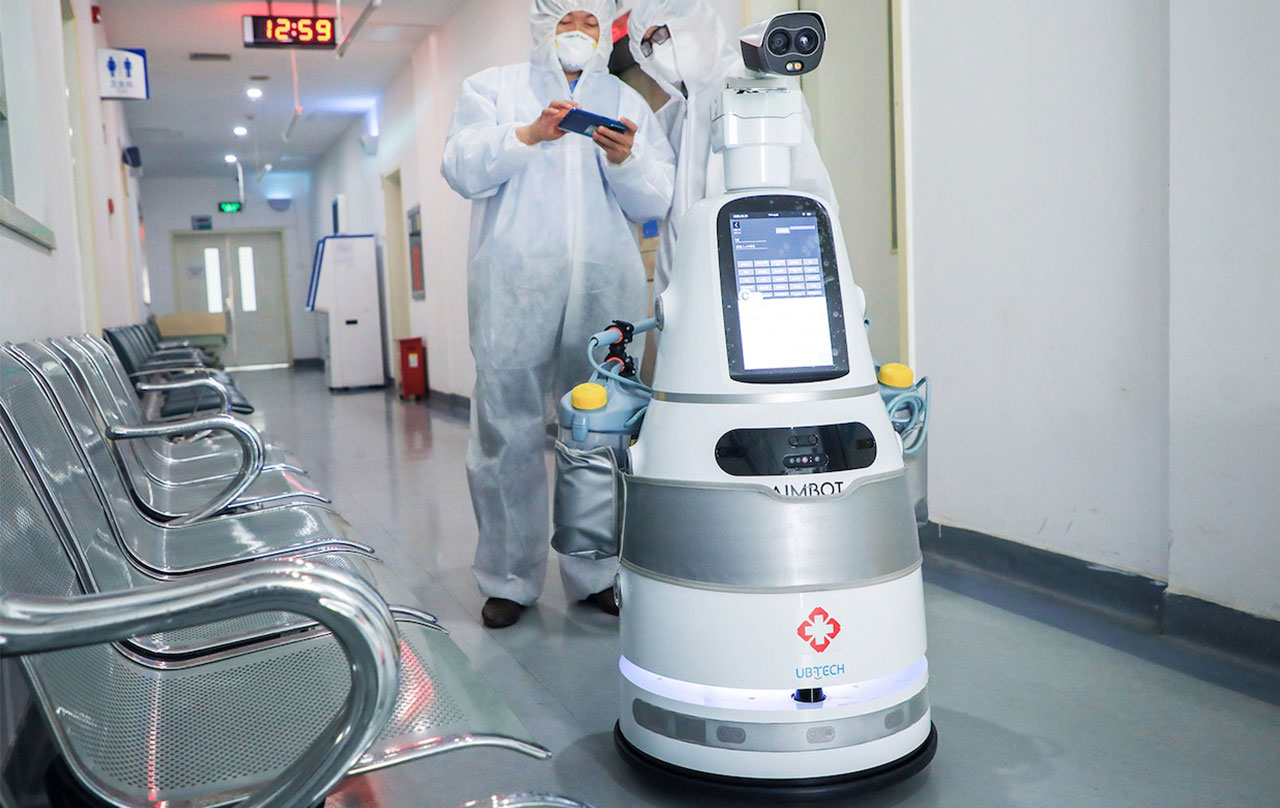
Professor Guang-Zhong Yang, Institute of Medical Robotics, Shanghai Jiao Tong University. Photo: Shanghai Jiao Tong University
Erico Guizzo of IEEE Spectrum – the magazine of Institute of Electrical and Electronics Engineers – interviews Professor Guang-Zhong Yang, dean of the Institute of Medical Robotics at Shanghai Jiao Tong University: A call to the robotics community for a strong, coherent and well orchestrate action to develop robots that support humans in the COVID pandemics.
Here some excerpts. To read the entire article, here
Spectrum’s Erico Guizzo: After Japan’s Fukushima nuclear emergency, the robotics community realized that it needed to be better prepared. It seems that we’ve made progress with disaster-response robots, but what about dealing with pandemics?
“I think that for events involving infectious diseases, like this coronavirus outbreak, when they happen, everybody realizes the importance of robots. The challenge is that at most research institutions, people are more concerned with specific research topics, and that’s indeed the work of a scientist—to dig deep into the scientific issues and solve those specific problems. But we also need to have a global view to deal with big challenges like this pandemic.
So I think what we need to do, starting now, is to have a more systematic effort to make sure those robots can be deployed when we need them. We just need to recompose ourselves and work to identify the technologies that are ready to be deployed, and what are the key directions we need to pursue. There’s a lot we can do. It’s not too late. Because this is not going to disappear. We have to see the worst before it gets better.
“Robots can be really useful to help you manage this kind of situation, whether to minimize human-to-human contact or as a front-line tool you can use to help contain the outbreak,” he says. While the robots currently being used rely on technologies that are mature enough to be deployed, he argues that roboticists should work more closely with medical experts to develop new types of robots for fighting infectious diseases”.
“What I fear is that, there is really no sustained or coherent effort in developing these types of robots,” he says. “We need an orchestrated effort in the medical robotics community, and also the research community at large, to really look at this more seriously.”
Yang calls for a global effort to tackle the problem. “In terms of the way to move forward, I think we need to be more coordinated globally,” he says. “Because many of the challenges require that we work collectively to deal with them.”
Spectrum’s Erico Guizzo: While some people say we need more technology during emergencies like this, others worry that companies and governments will use things like cameras and facial recognition to increase surveillance of individuals.
A while ago we published an article listing the 10 grand challenges for robotics in Science Robotics. One of the grand challenges is concerned with legal and ethical issues, which include what you mentioned in your question. Respecting privacy, and also being sensitive about individual and citizens’ rights—these are very, very important. Because we must operate within this legal ethical boundary. We should not use technologies that will intrude in people’s lives. You mentioned that some people say that we don’t have enough technology, and that others say we have too much. And I think both have a point. What we need to do is to develop technologies that are appropriate to be deployed in the right situation and for the right tasks.








